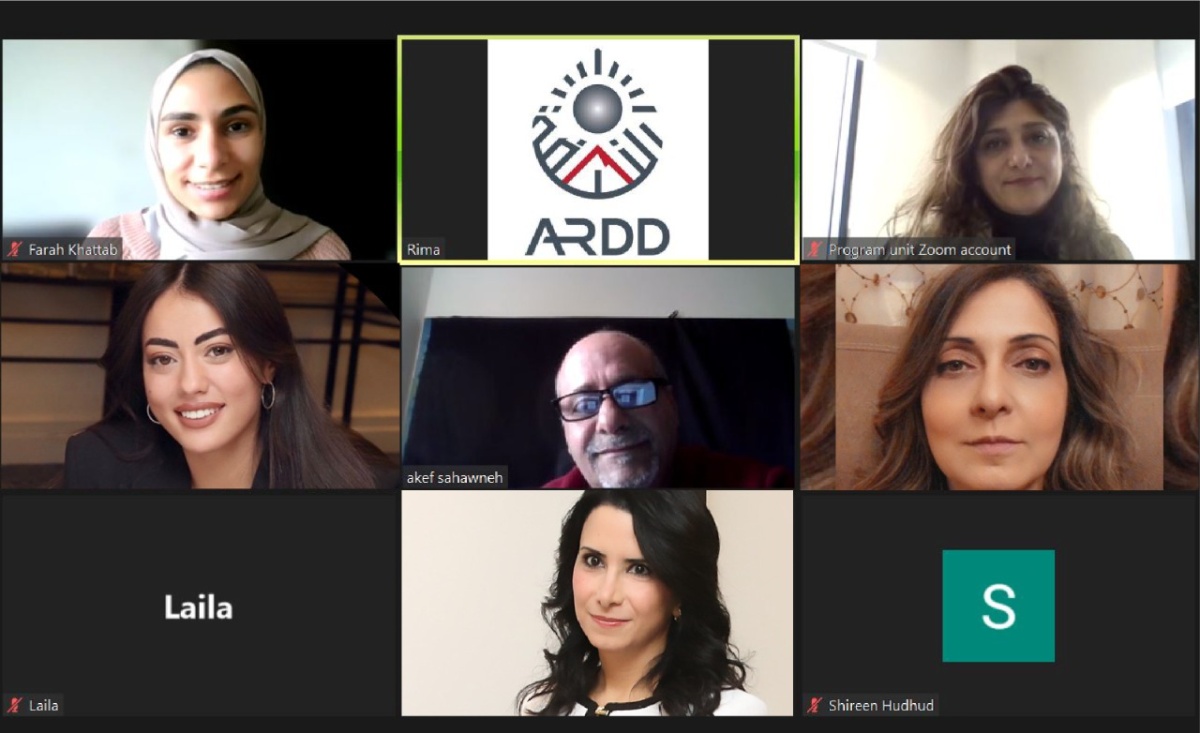Some years ago, a former minister of education admitted that about 130,000 Jordanian students in the first three grades cannot read Arabic or English letters, and that they constituted 22 percent of the students in Jordan. There is every reason to believe that this percentage increased further due to the corona pandemic and the transition to distance education.
While the government asserts that online education is successful and achieves its purpose, education experts and workers, as well as observers of the educational system in Jordan, have a completely different opinion and emphasize that the educational process has become more complicated and, more importantly, inaccessible to students in many areas in Jordan who are deprived of the most basic necessities of life and whose families cannot afford to get smartphones, tablets and Internet subscription, essential elements for online learning.
In view of this situation, the Arab Renaissance for Democracy and Development (ARDD) held a seminar to develop a vision for the programs and projects that will be worked on in order to ensure the integration of the pedagogical, educational, value and rights approach, and strengthen the protection of students’ rights.
The seminar was held on January 13, 2022; among the attendees were: ARDD Executive Director Samar Muhareb, Vice President of Vision Hope International in Jordan Farah Khattab, Project Manager at Manshiet Bani Hassan charitable association Akef Sahawana, and Projects Coordinator at Branches of Mercy Association in Karak Heba Al-Sunna’a.
At the end of August 2021, ARDD had launched the education program strategy for the next three years. It followed a comprehensive approach to education to ensure the right to access quality education and provide continuous learning opportunities for all, taking into account the challenges facing the education sector, especially those left by the psychological and economic repercussions of the corona pandemic.
Muhareb focused on problems in education and ways to solve them, the importance of education to have means of subsistence and protection, the right of students in education, and the extent to which the educational system ensures respect for human rights.
Muhareb said that the corona pandemic and distance education increased the challenges and problems in the education sector, and highlighted the gaps and shortcomings in the educational process.
Besides these challenges, she said, there is a growing number of children who drop out of school, high rates of early marriages in the most vulnerable communities, such as refugees, host communities and people with disabilities, and high rates of unemployment which compound the shortcomings of the current educational system. All these led to students acquiring weak skills, if at all, she said.
Muhareb also stressed the need to develop a comprehensive educational system that guarantees protection for students and the preservation of all their rights.
According to Sahawana, “corona made education matters worse” as it affected the level of education. He stressed that online learning was not successful by any standard, particularly in the early stages of education.
“The corona pandemic will end, but the problem is that we have wasted a generation due to educational challenges and the gap in education between public and private schools, and this will haunt us for a very long time,” he said.
Al-Sunna’a reviewed the efforts made to mitigate the impact of successive crises on the educational process, especially for the refugee and host communities. She stressed the importance of strengthening the partnership between parents and students, and schools, as they form the axes of the educational process, of accountability, and the need to strengthen decentralization in decision making to reduce bureaucracy and ensure the implementation of projects supporting education.
Khattab said: “Whether we agree with online education or not, we must address its difficulties and work on ways to develop it to secure an inclusive and comprehensive education for all”.
She stressed the need to develop the educational process and the capabilities of those in charge of it on online education, and train teachers, parents, and students to build a comprehensive educational system based on the right to access quality education for all through cooperation with civil society organizations.
All participants agreed on the importance of partnership between government institutions and local civil society, the need to develop a plan to meet challenges, and to sustain and activate dialogue between concerned authorities from public and private sectors, parents, students, and civil society.
They also agreed that there is a need to strengthen advocacy efforts, at the national level as well, and not only at the international level, and to work together to bridge the educational gap between public and private schools and enable them to carry out support projects, through continuous participatory exploration of ways to adapt educational strategies and educational content so that it is able to provide alternatives in exceptional circumstances, and through diligent work on developing curricula to improve the quality of education, ensure the protection of students, enhance critical thinking and teach students their rights and duties.


